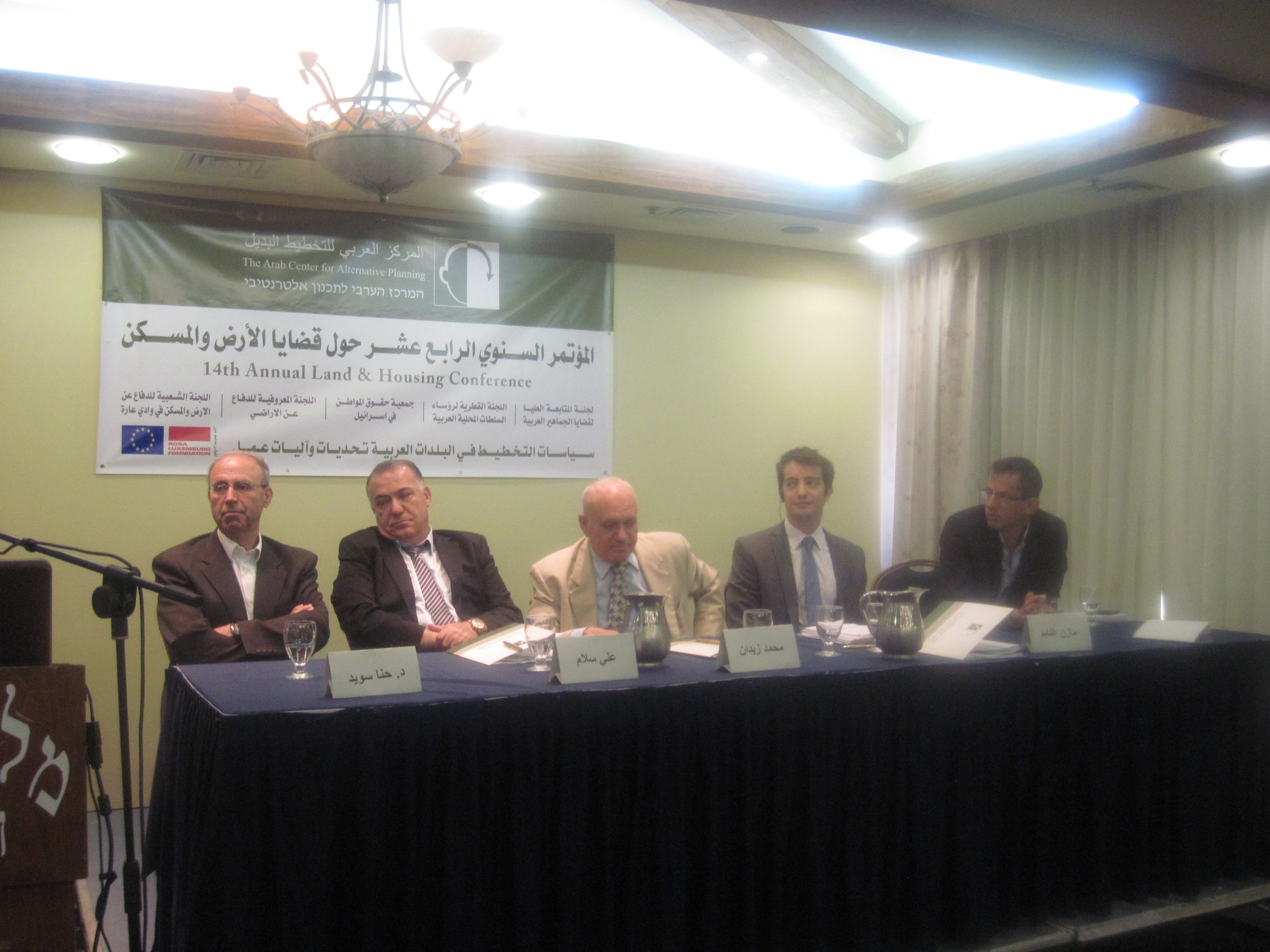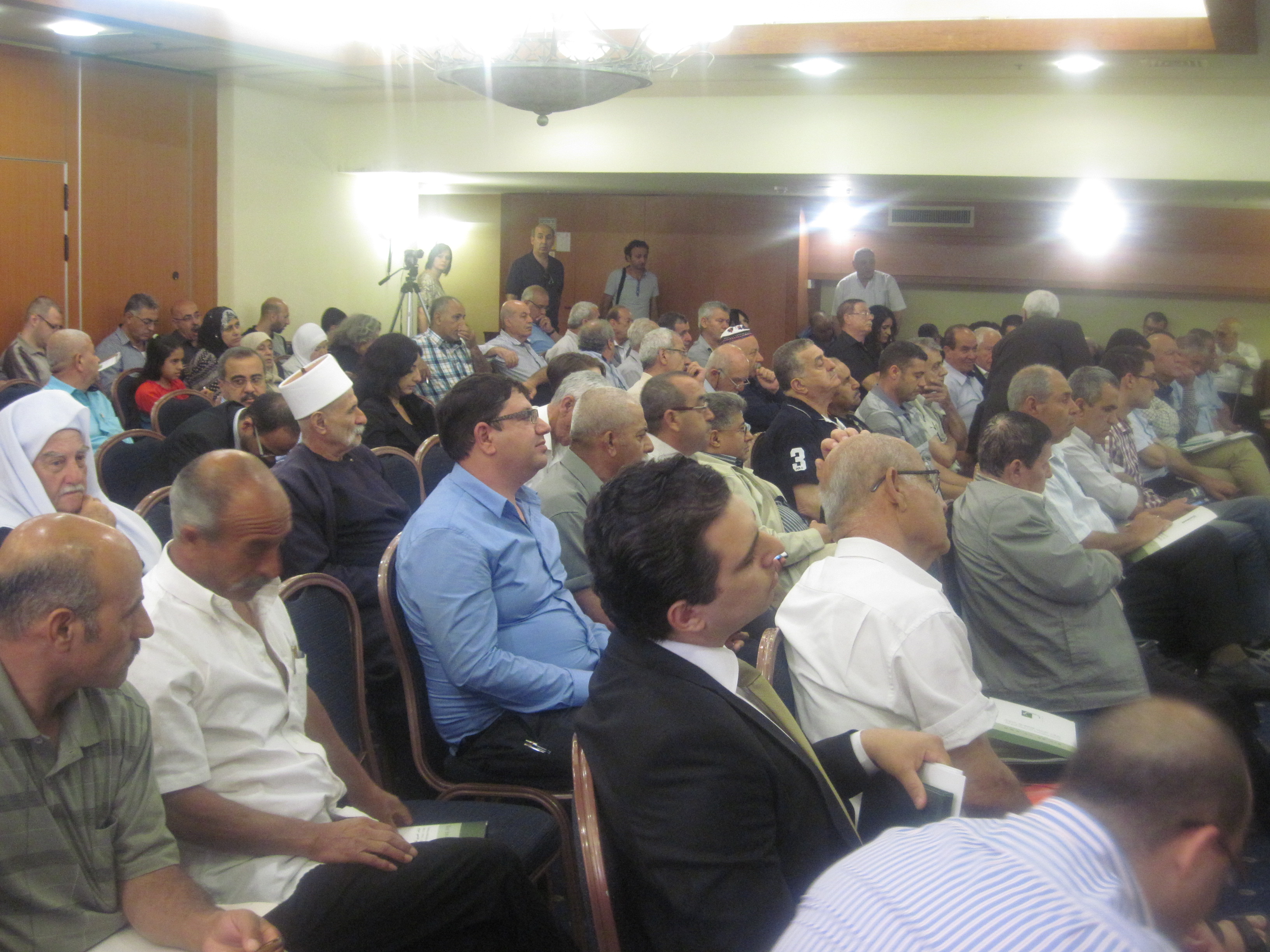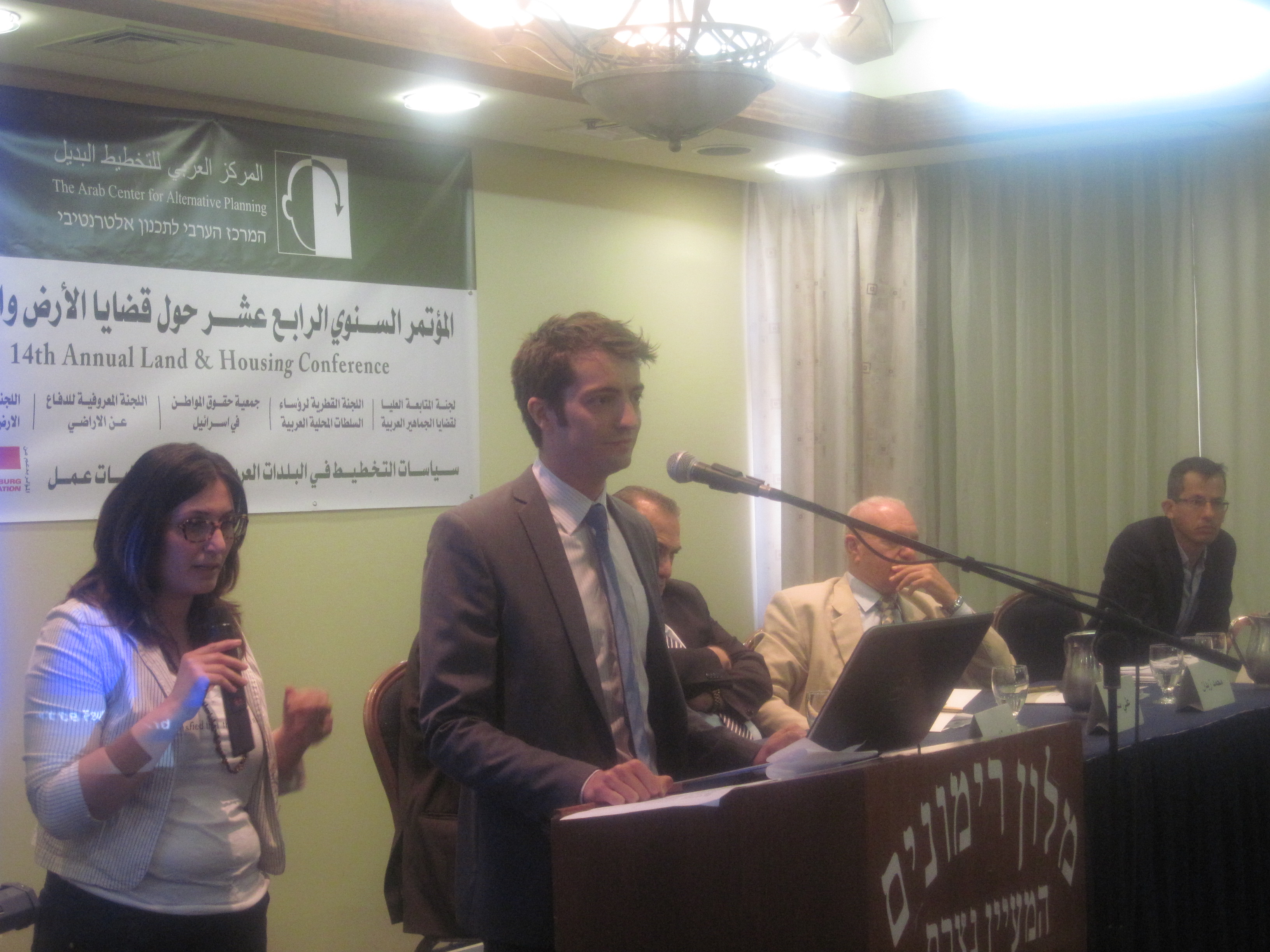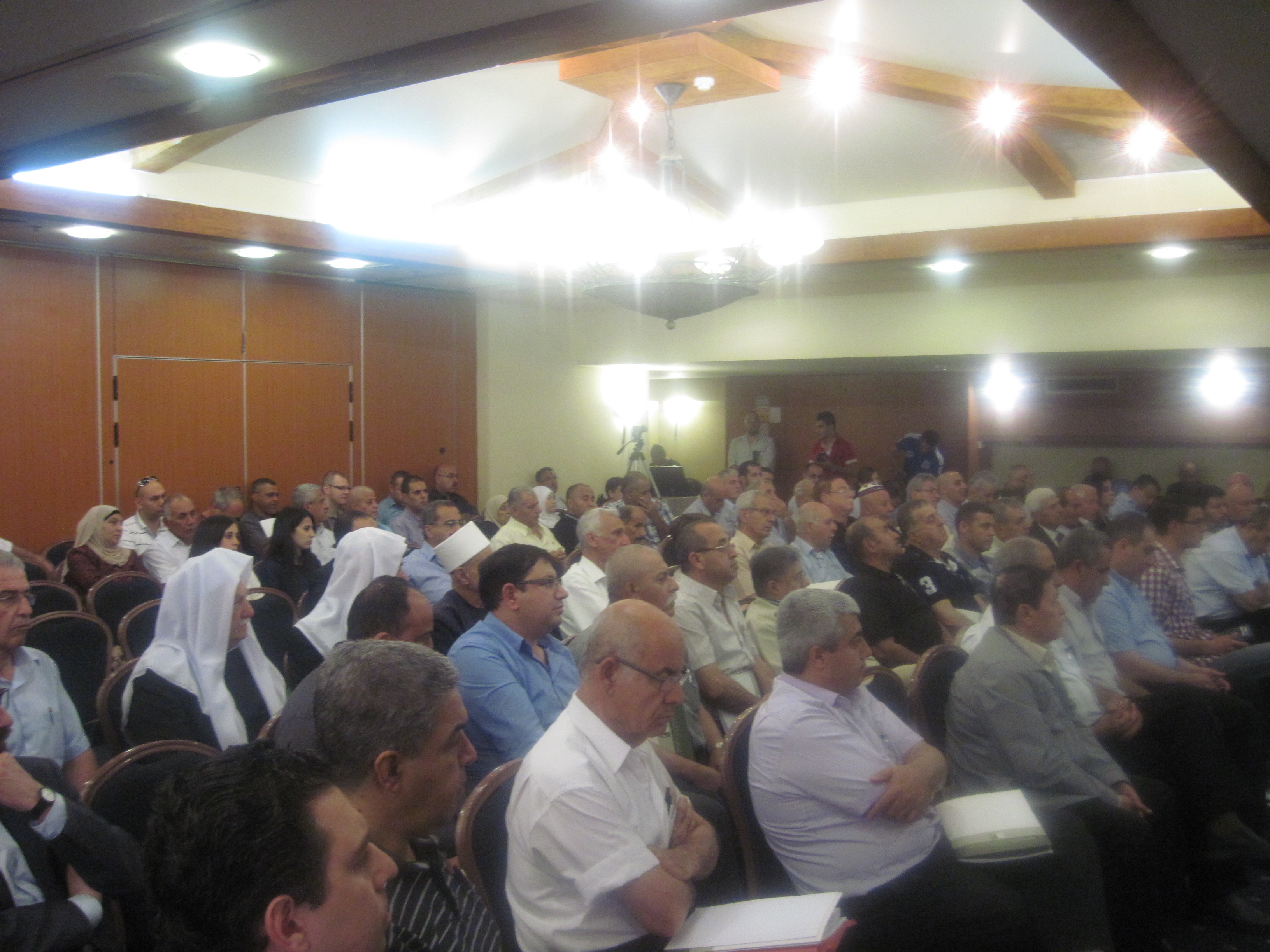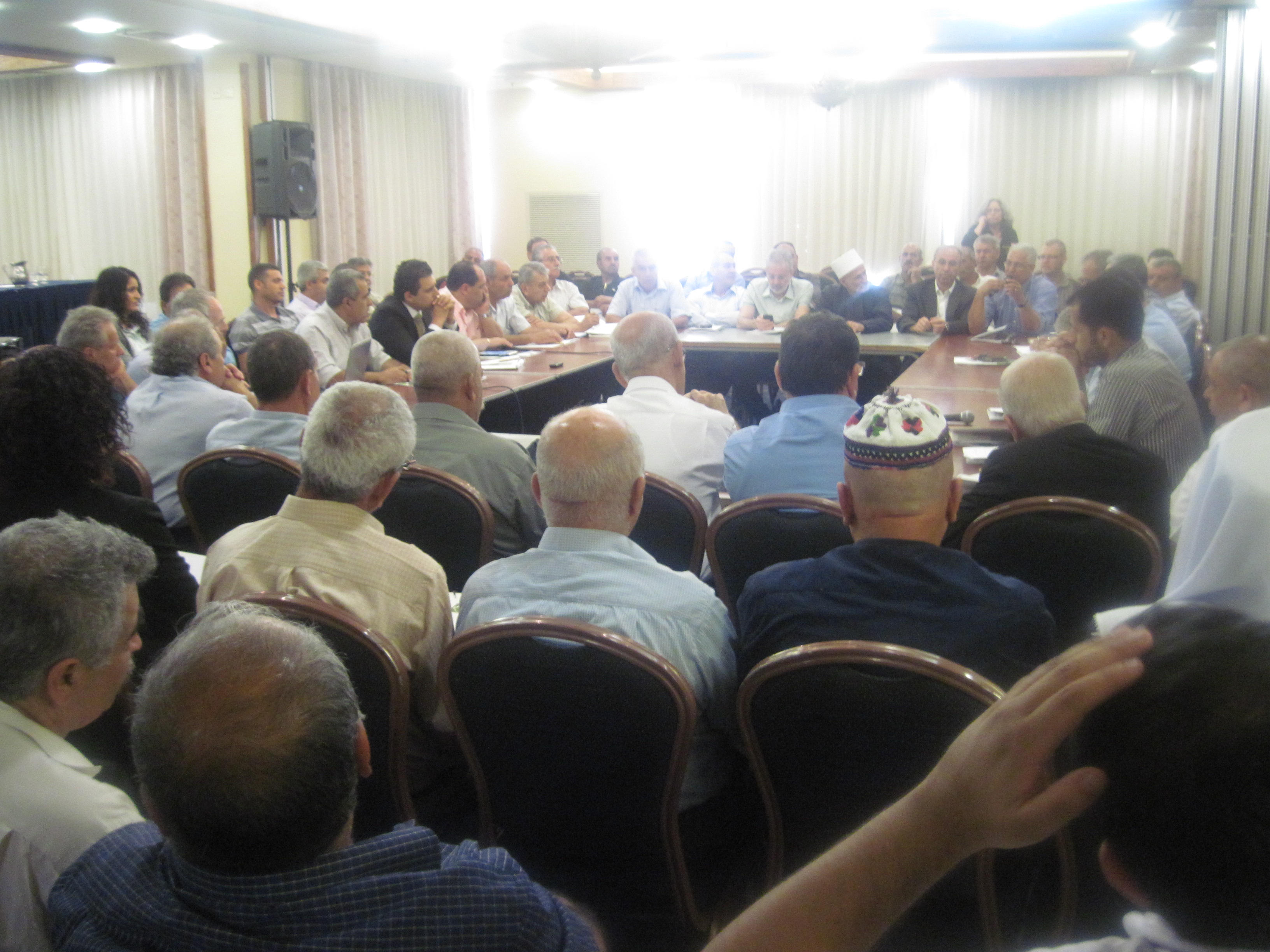Publishing date: 07/05/2014
* All sessions of the conference had a large turnout of planning professionals.
On Tuesday, April 29th at the Rimonim Hotel Nazareth, ACAP held its 14th Annual Land and Housing Conference to discuss challenges and tools facing planning policies in Arab towns. This conference is held annually by ACAP to commemorate the memory of Land day.
This year's conference was implemented in partnership with: The Association for Civil Rights in Israel (ACRI), The National Forum of Arab Mayors, The Higher Follow-up Committee on Arab Affairs, The National Committee for the Defense of the Land and Housing in the Druze Towns, and The Popular Committee for the Defense of Land and Housing in Wadi Ara.
The uniqueness of the conference is the heterogeneity of its attendance. Tens of members of popular committees from Arab towns participated. Also participating in the conference were municipality engineers, members, and mayors of various Arab townships, and lawyers. Representatives of various public organizations, foreign delegations and an EU representative participated.
The opening session of the conference included opening remarks by: Mr. Mohammad Zidan, Chairman of the Higher Follow-up Committee on Arab Affairs; Mazen Ghnayem, Head of the National Forum of Arab Mayors and Mayor of Sacknin; MK Dr. Hanna Swaid, Head of ACAP's Board of Representatives; Haga El-Ad, Executive Director of ACRI; and Sébastien Lorion, Representative from the EU.
Dr. Hanna Swaid opened the conference by emphasizing the importance of planning in Arab towns, especially following strategies to stand against discriminatory plan that look to hinder the development of Arab towns. All Arab municipalities should be equipped with the suitable planning knowledge to further their goals of advancement.
Mr. Mohammad Zidan (Chairman of the Higher Follow-up Committee on Arab Affairs) emphasized the importance of the work that is carried out by ACAP. ACAP`s continuous research and workshops promote the standing against ongoing confiscations and discriminatory plans. ACAP gives the Arab public vital information for the continuation of their daily struggle.
Ali Salam, Mayor of Nazareth, greeted the guests, emphasizing the importance of the conference. Salam stated:"that the equality that we as Arabs hope to reach is based on equality of land distribution and resources. How is it that Nazareth`s jurisdiction is 14000 dunams, but Narath Elite with half the population has 56000 dunams under its jurisdiction".
Sébastien Lorion (Representative from the EU), praised the conference and the ongoing cooperation between ACAP and ACRI on such important issues concerning day to day issues that the Arab population face.
The first session of the conference was facilitated by Awni Banna – Advocate from ACRI. It dealt with the subject of "Regional plans- problems that are facing issues of planning and ways to overcome these problems." The session was opened by a lecture from ACAP`s urban planner Enaya Banna. Banna`s lecture presented the main problems facing the advancement of regional master plans in Arab towns. She discussed the general problems that are facing Arab towns that are caused mainly by the lack of infrastructure and environmental protection in lands that are privately owned. These problems do not gain enough attention from planning offices.
Adib Daoud Nakas, Engineer and Urban Planner, discussed the Regional Master Plan in Daborya. Daborya is considered a success in its past precedents with governmental planning offices.
Awni Zreikat, Kofer Kana Municipality`s Engineer, presented Kofer Kana`s Regional Master Plan. Zreikat mentioned the stages of the plans` development and the way the municipality`s staff dealt with the changes in such plans.
Ibrahim Abu Sahlook gave the example of the apple orchard in Lod to explain the legal options that influence the planning sphere. The session was concluded by Mr. Ahmad Mulhem – The chair of The Popular Committee for the Defense of Land and Housing in Wadi Ara who discussed the past experience with popular committees in dealing with National Master Plans.
The second session of the conference was a round table format that focused on National Plans and strategies to alter these plans. The session was facilitated by Journalist Jackie Khoury. The participants listened to short presentations given by different speakers. Mr. Fahmi Halabi, Head of the National Committee for the Defense of the Land and Housing in the Druze towns shared the Halma and Mansora experience. Mr. Salah Sawied presented the Remya case with its relation with the city of Karmiel. Karmiel discriminated against citizens from this area by abusing their basic rights.
Advocate Kies Naser discussed legal options that can be used to face national plans. The session concluded with a debate in which more than 2o people engaged in dialogue and shared their opinions regarding ways to deal with national plans, and possible alternative options and solutions. The main participants of the debate were mayors, municipality engineers, members of popular committees, and members of private organizations.
The staff of ACAP distributed to all participants in the conference a position paper about the Braver Plan, and ACAP`s 13thAnnual Land and Housing Conference booklet. ACAP will implement in the near future a study day with various organizations regarding land issues in the Negev.
